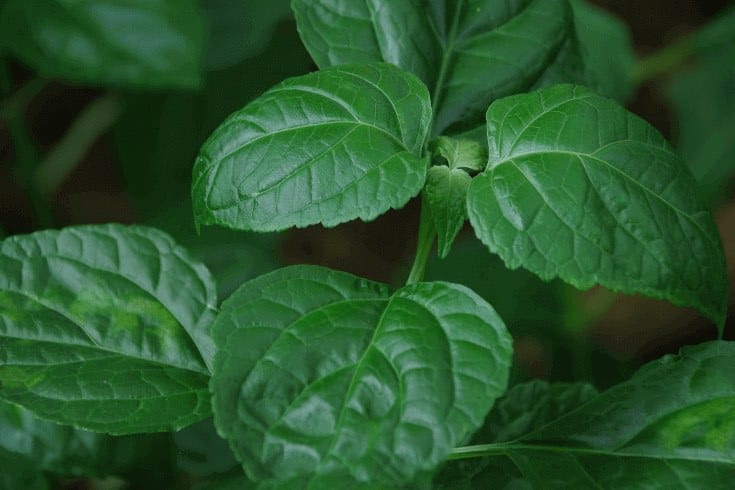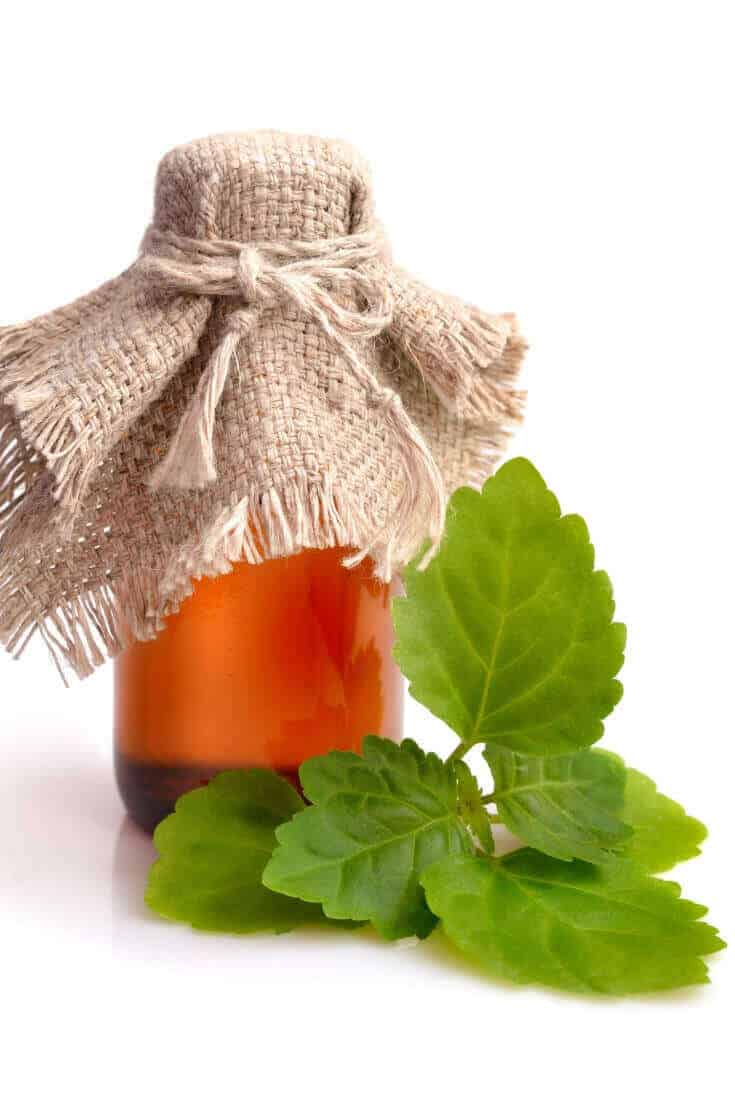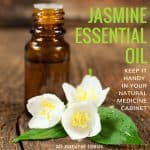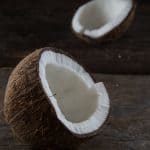Patchouli oil is perhaps most well known for its earthy, natural fragrance. In other words, hippies love it. But what are other patchouli oil uses and benefits?

Patchouli oil smell is notorious. When many people think of patchouli, there’s an automatic association with the earthy perfume scent. However, in addition to using it as a natural aroma, there are many other things that patchouli can be good for.
What is patchouli oil used for?
According to the Updated & Revised Essential Oils Expanded guide (2017), here are several uses of patchouli.
For skin improvement:
- wrinkles
- acne
- dermatitis
- boils
- insect bites
- wounds
- polyps
- sunburns
- skin tonic
For mood and brain function:
- anxiety and panic attacks
- ADHD
- Asperberger’s
- Alzheimer’s
Other uses of patchouli include:
- Nausea
- Digestive issues
- Hemorrhoids
- Fungal infections
- Diuretic
- Insecticide
- Fevers
- Scleroderma (autoimmune disease of the skin’s connective tissue)
That’s quite an impressive list of patchouli uses. But are the benefits of patchouli proven? Will you find in, say, the New England Journal of Medicine, a research study that concludes “Patchouli Oil Cures Alzheimer’s Disease!”
Of course not. But that doesn’t mean that it can’t help in some small part manage or improve a condition.
Let’s take a look at what the research does say about patchouli….
Proven Patchouli Oil Uses and Benefits
May prevent MRSA and other bacterial infections
MRSA is a potentially deadly infection. Each year over 90,000 people in the U.S. suffer from this drug-resistant staph infection. About 20,000 will die from MRSA.
Antibiotics can’t kill MRSA. Consequently, you’d assume peace-loving patchouli oil is impotent against it, too. But that might not be the case. This study demonstrates the potential of essential oils such as patchouli as antibacterial agents, and for use in the treatment of MRSA infection. In combination with other oils such as geranium and tea tree, patchouli might help stop MRSA bacteria from growing.
And this study shows that patchouli oil can help kill other harmful bacteria.
Kills Termites
Not only is patchouli oil lethal to certain types of bacteria, it’s also a killer of another bug: real insects, specifically termites. Research in the Journal of Agricultural and Food Chemistry concludes patchouli oil and its main chemical alcohol is toxic and repellent to Formosan subterranean termites. “Unusual tissue destruction was noted inside the exoskeleton of the termite after patchouli alcohol was topically applied to the dorsum,” concludes the study.
Helps Ease Colitis and Ulcers
There appears to be evidence backing the Essential Oil Updated & Revised Guide’s listing of digestion issues as one use of patchouli oil (PO). The journal, Experimental and Therapeutic Medicine claims patchouli oil eases colitis. The researchers examined the potential therapeutic effects of PO on inflammatory bowel disease (IBD), rates of which continue to increase.
But of the thousands of therapeutic plants, why did the researchers pick PO? Because it’s been used for centuries as a traditional medicine in China and other parts of Southeast Asia. These days, the dry leaves of the plant are steam distilled to render the essential oil. Researchers of today believe that a specific type of antioxidant–triterpenes–is the reason why PO can fight bacteria and inflammation.
Colitis is an inflammation of the bowels. The study in Experimental and Therapeutic Medicine concludes PO helps kill harmful bacteria in the gut. This in turn, lessens inflammation in the bowels.
Research in Phytomedicine also shows that PO may help ease gastric ulcers.
(However, like most studies on plant oils, the test subjects in both studies above weren’t humans.)
There are 183 research studies on patchouli listed available on PubMed if you wish to explore more of the proven benefits.
How Do You Use Patchouli Oil?
So let’s say you do have digestive issues. How would you use this oil? Do you drink it? Put it in a smoothie? Slather it all over your belly and rub it in?
You can use it in several ways. PO can be used aromatically (take a whiff); topically (apply directly on to your skin or with a cloth); internally (mix in water). If you use it directly on your skin, it’s considered a safe oil to use without the need for mixing it with a carrier oil.
Here are some ways you can use it:
- For skin conditions like wrinkles, fine lines and cellulite: dilute it in a light carrier oil like almond oil and massage directly on the skin. (Even though it’s safe to use without a carrier oil, it’s better to be safe than sorry)
- Got bites, scrapes or cuts? You can dab a few drops of PO on a cotton ball and apply directly on the affected area.
- If you’re camping or staying in a hotel and you’re spooked by bed bugs and other critters, pour a few drops onto the hotel sheets, mattress and on your wrists.
In addition, you can also diffuse patchouli oil. You’ll need an oil diffuser for that. Oil diffusers can be very basic and inexpensive, or they can run several hundred dollars.
To enhance your mood, try an oil blend that contains patchouli as well as lavender, ylang ylang, wild orange, rose, vetiver and cedarwood. This blend is considered the best by the aforementioned Essential Oil Guide to relieve tension.
Patchouli oil for weight loss
So far, all the potential benefits of PO sound great. But can it actually help you lose weight? Perhaps. Because it has anti-inflammatory properties, it may aid the liver in the detoxification process. If your liver is sluggish in eliminating metabolic waste, your metabolism will be slower.
Of course, if you eat lots of refined carbs and empty-calorie snacks, diffusing some PO in your room won’t melt your body fat away.
However, according to clinical nutrition specialist, Dr. Axe, a combo of PO and grapefruit essential oil can eliminate cravings. This makes PO “A great tool to lose weight fast in a healthy way,” claims Dr. Axe. To use PO for weight loss, Dr. Axe says you can add several drops to your water, diffuse it in your office or home, or massage some onto your chest and wrists when a craving strikes.
You’ll have to see for yourself whether or not any of these ways to use patchouli oil helps. Without doubt, those who are only convinced by peer-reviewed scientific journals would have a hard time swallowing using PO to curb hunger by applying it to the wrists.
But let the naysayers say nay! There’s far more to losing weight than just eating right and getting enough exercise. Half the battle, if not much more, is a mental one. Essential oils have a proven ability to enhance mood. Therefore, if you have a problem with emotional eating, perhaps there is something to patchouli oil for weight loss….
Patchouli oil for hair
And it turns out, it might even help with your hair. Especially if you have dandruff or oily hair. Tea tree is one of the best essential oils for naturally treating dandruff. But PO is right up there. And to use it is simple. All you have to do is apply several drops onto your scalp along with your regular shampoo and massage it in. For best results, leave it on for at least a couple minutes.
If you have crazy curly cues, PO can help manage them. Courtesy of NaturallyCurly.com, here’s a recipe for treating hair:
Patchouli oil for hair recipe
- 2 drops of pure patchouli oil
- 1 Tsp. baking soda
- 1 application of sulfate-free shampoo
Mix the shampoo, patchouli oil, and baking soda in a small bowl and blend well. Apply to hair and scalp and massage gently in circular motion. You can continue to wash hair with the mixture before rinsing well and styling as usual. This is a great recipe for exfoliating and soothing the scalp.
In addition to treating dandruff and excessively oily hair, PO can also help fungal infections on your scalp. If your head has any irritation or visible signs of inflammation, PO might be able to help.
Because PO can help your blood vessels contract, it might encourage hair follicles to reactivate.
If you’re not a big fan of its smell, for your sake, hopefully more people don’t find out about patchouli oil benefits for hair. Love or hate the smell, it’s a therapeutic oil with many uses and applications.
What do you think about patchouli oil? Leave a comment….







